10 reasons why Google is becoming the new Microsoft
Has "don't be evil" become more like an evil empire?
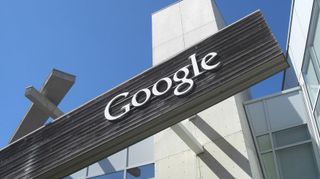
Introduction
Around the turn of the millennium, Microsoft was under siege from all directions. Rivals were nipping at its heels, offering alternatives to its most profitable products. Regulators were poking around, looking for signs of unethical activity. It was making me-too products, and using bundling to secure market advantage.
And now in 2015, Google is under siege from all directions. Rivals are… you can see where we're going with this, we're sure. Here are 10 reasons why Google today looks more and more like the Microsoft of then.
Its core business is under threat

Microsoft's cash cows were Windows, Office and server software, and in the days when almost every device had to run Windows and Office those cows generated a lot of cash.
However, the shift from PC to mobile and from paid software to free, such as Apple's free iOS and OS X updates and Google's Android, has threatened that. This is why Windows 10 is free in the hope of boosting market share and Office as a service, not just a desktop app.
For Google, the cash cow is ads – and the threat is the rise of ad-blocking.
Google's partners don't make much money
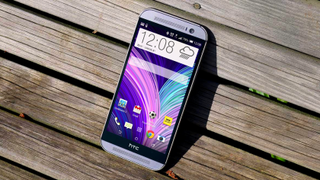
You can blame laughably thin profit margins for the bloatware on cheap PCs – some OEMs are operating on truly microscopic margins in a market of me-too products. Android OEMs are beginning to understand that feeling, and with the exception of Samsung, the Android market is looking a lot like the PC market of old with endless me-too devices competing for our attention.
Some OEMs, such as HTC and LG, have balance sheets that make hardened accountants weep, and their glory days seem rather distant now…
Are you a pro? Subscribe to our newsletter
Sign up to the TechRadar Pro newsletter to get all the top news, opinion, features and guidance your business needs to succeed!
It's got a reputation for malware

Windows today has very little relation to, say, Windows XP in terms of security – but the popular perception is still that Windows means viruses and other unpleasantness while OS X is shiny, safe and secure.
Exactly the same thing has been happening with Android, where despite Google's best efforts all kinds of poor quality apps continue to thrive. Google's Bouncer technology is supposed to spot malware and prevent it from entering the Play Store, but at the time of writing yet another new malicious app – Brain Test – has been downloaded between 200,000 and 1 million times.
It's almost a monopoly
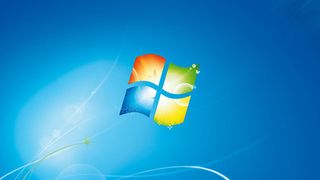
At its peak, Windows XP was used by more than 80% of computer users – and at one point Microsoft's Internet Explorer had 97% market share in web browsing. That's not quite a monopoly, but it did give Microsoft the ability to use its enormity to push its own products – for example by making Internet Explorer the default browser in Windows.
Google has nearly 70% market share in search (it's in the high nineties in Europe) and, it's alleged, may have given undue prominence to its own products and services in search results.
Google is aggressively pushing its own products
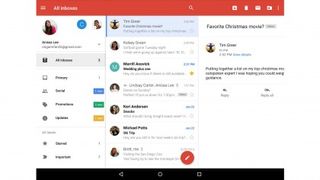
We mentioned Internet Explorer in the last slide – Microsoft's bundling of that in every copy of Windows effectively killed Netscape, and of course it has also bundled other products such as The Windows Network, MSN Messenger, SkyDrive/OneDrive and so on.
Pick up any Google-approved Android phone and you'll see the Google Play Store, Google Maps, Gmail, Google Calendar, Google Hangouts, Google Chrome, Google Play Music, Google Now… if you don't want to use Google's many services, Android phones aren't much fun.
It wants to be everything to everyone

Remember the Zune, Microsoft's iPod Killer, or the Kin, its iPhone rival? Microsoft's original goal was a PC on every desktop and Windows on every PC, but that goal morphed to include games consoles and smartphones and media PCs and keyboards and tablets and online services and… you get the idea.
Meanwhile Google – or rather its new Alphabet umbrella company – has a search engine and an advertising platform and social networking and a mapping service and makes tablets and laptops and military robots and self-driving cars and TV streamers and smart contact lenses and augmented reality glasses and set-top boxes and…
It's locked in a bitter battle with a giant rival

For Microsoft, the rival was Google. For Google, it's Apple. Since the arrival of the iPhone, or rather the re-launch of Android with obvious iPhone inspiration, the former friendship between Google and Apple has broken down.
Apple makes incredible margins from selling far fewer phones than Google's Android, it's moving into enterprise computing, and it's slowly but surely removing Google services from iOS and OS X, from maps to the ads iOS 9 can somewhat controversially block. The two firms have rival media operations, rival health tracking services, rival beacons and rival home automation too, and multiple rumours suggest Apple will have a rival electric car as well.
Google risks upsetting OEMs
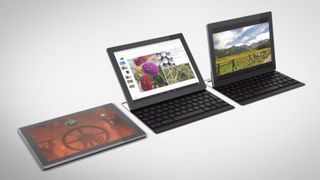
Microsoft's Surface line raised hackles among OEMs, many of whom felt that Microsoft should stick to the software and let them get on with the hardware.
Google seems to have similar uncertainty over whether it's in the hardware business or not: it makes the Chromebook laptop, Chromecast TV streamer and the new Pixel C tablet, gets OEMs to make its Nexus devices and licenses Android to all and sundry (albeit with pretty serious terms and conditions, as set out in the Mobile Application Distribution Agreement), and will no doubt make its second generation of Google Glass too.
It's being investigated for anti-trust
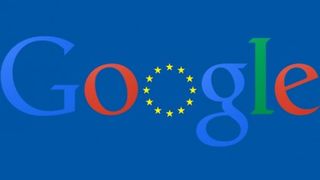
You haven't made it in the tech industry until you've been the subject of intense regulatory scrutiny in the US and EU. Microsoft went through it years ago and now it's Google's turn – the EU is currently investigating allegations of Google abusing its market dominance in advertising contracts and in its use of others' data.
Meanwhile in the US, the FTC and DoJ are probing Android amid allegations that Google limits other firms' access to favour its own apps. The investigation could potentially mean Google will be made to unbundle its own apps from Android.
Google is losing people's trust
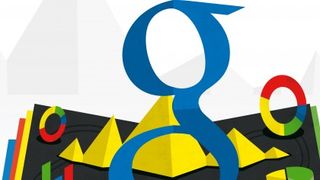
To many, Microsoft was the evil empire of tech – something that clearly informed Google's famous "don't be evil" motto. Today's Google is a long way from that early promise, though, and there's a growing unease concerning Google's business activities and the information it has about us.
A good example happened this week: on the same day Apple launched a new, very transparent privacy policy and urged the world to read it, Google showed its advertisers ever more detailed ways to target people with sales messages. The internet wasn't slow to compare the two companies' posts.
Writer, broadcaster, musician and kitchen gadget obsessive Carrie Marshall (Twitter) has been writing about tech since 1998, contributing sage advice and odd opinions to all kinds of magazines and websites as well as writing more than a dozen books. Her memoir, Carrie Kills A Man, is on sale now. She is the singer in Glaswegian rock band HAVR.

